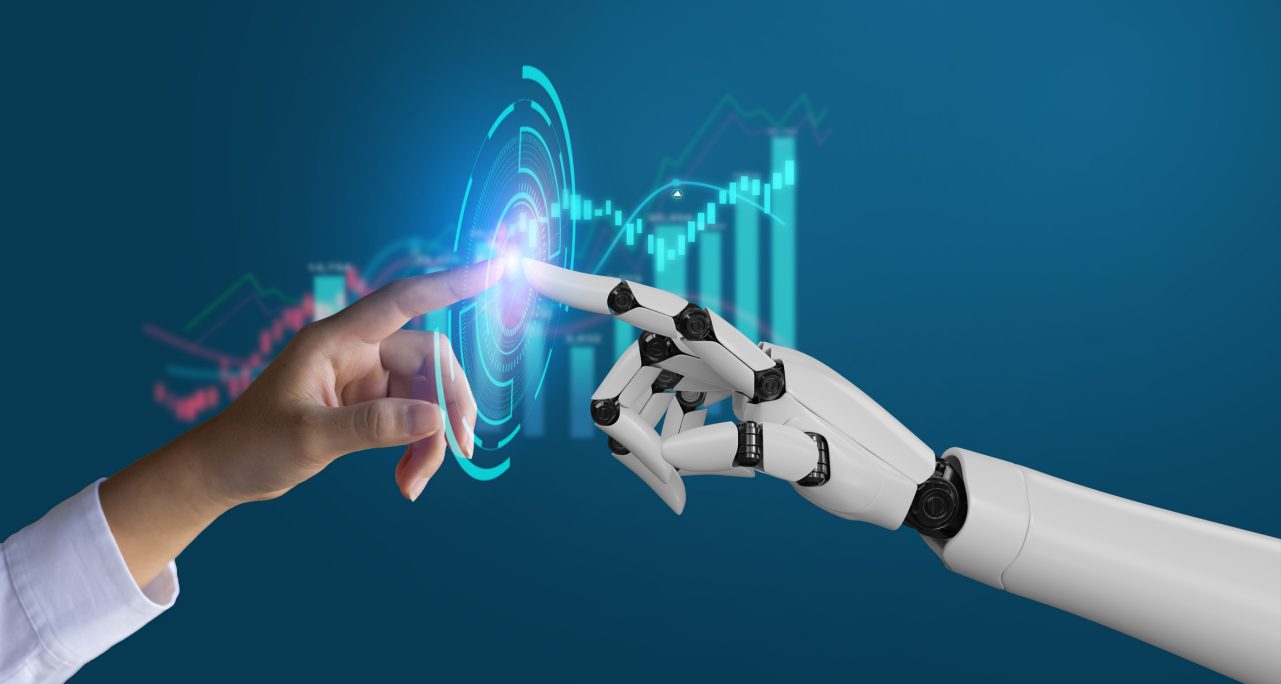Topic: What Is Artificial Intelligence (AI)?

How AI Works
Types of AI
Using AI
FAQs
Investing
Alternative Investments
What Is Artificial Intelligence (AI)?
Gordon Scott has been an active investor and technical expert or 20+ years. He is a Chartered Market Technician (CMT).
Investopedia/ Daniel Fishel
What Is Artificial Intelligence (AI)?
Expert system (AI) technology permits computers and devices to imitate human intelligence and analytical tasks. The ideal attribute of expert system is its capability to rationalize and act to attain a particular objective. AI research began in the 1950s and was utilized in the 1960s by the United States Department of Defense when it trained computer systems to mimic human thinking.
A subset of expert system is machine learning (ML), a principle that computer system programs can immediately discover from and adjust to brand-new information without human support.
Key Takeaways
- Expert system innovation permits computer systems and devices to mimic human intelligence and problem-solving capabilities.
- Algorithms are part of the structure of synthetic intelligence, where simple algorithms are used in basic applications, while more complicated ones help frame strong expert system.
- Artificial intelligence technology appears in computers that play chess, self-driving automobiles, and banking systems to discover deceitful activity.
How Artificial Intelligence (AI) Works
Artificial intelligence commonly brought to mind the application of robots. As innovation evolved, previous benchmarks that define synthetic intelligence ended up being out-of-date. Technologies that allow Artificial Intelligence include:
- Computer vision enables computer systems to determine objects and people in pictures and pictures.
- Natural language processing (NLP) enables computer systems to comprehend human language.
- Graphical processing systems are computer system chips that help computers form graphics and images through mathematical calculations.
- The Internet of Things is the network of physical gadgets, cars, and other items embedded with sensors, software, and network connection, that gather and share information.
- Application shows enables 2 or more computer system programs or elements to communicate with each other.
Algorithms often play a part in the structure of synthetic intelligence, where easy algorithms are used in simple applications, while more complex ones help frame strong synthetic intelligence.
Types of Artificial Intelligence
Narrow AI: Also referred to as Weak AI, this system is designed to bring out one specific job. Weak AI systems consist of computer game like personal assistants like Amazon's Alexa and Apple's Siri. Users ask the assistant a question, and it addresses it for you.
General AI: This type consists of strong expert system systems that continue the jobs considered to be human-like. They tend to be more intricate and complex and can be found in applications like self-driving automobiles or health center operating spaces.
Super AI is a strictly theoretical kind of AI and has not yet been understood. Super AI would think, reason, find out, and possess cognitive abilities that exceed those of human beings.
Using Artificial Intelligence
Expert system can be used to lots of sectors and industries, consisting of the healthcare market for suggesting drug does, identifying treatments, and aiding in surgeries in the operating room.
Other examples of machines with expert system include computer systems that play chess and self-driving vehicles. AI has applications in the monetary industry, where it finds and flags deceitful banking activity. Applications for AI can help simplify and make trading easier.
In 2022, AI went into the mainstream with applications of Generative Pre-Training Transformer. The most popular applications are OpenAI's DALL-E text-to-image tool and ChatGPT. According to a 2024 study by Deloitte, 79% of respondents who are leaders in the AI market, anticipate generative AI to transform their organizations by 2027.
What Is Reactive AI?
Reactive AI is a type of Narrow AI that utilizes algorithms to optimize outputs based upon a set of inputs. Chess-playing AIs, for example, are reactive systems that enhance the best technique to win the video game. Reactive AI tends to be relatively fixed, not able to learn or adapt to unique situations.
What Are the Concerns Surrounding the Use of AI?
Many are concerned with how artificial intelligence might affect human work. With lots of industries aiming to automate certain tasks with smart machinery, there is an issue that workers would be pressed out of the workforce. Self-driving vehicles might remove the need for taxis and car-share programs, while producers may quickly replace human labor with makers, making individuals's skills obsolete.
How Is AI Used in Healthcare?
In health care settings, AI is utilized to help in diagnostics. AI can identify little anomalies in scans to much better triangulate medical diagnoses from a client's signs and vitals. AI can categorize clients, preserve and track medical records, and handle health insurance claims.
The Bottom Line
Expert System (AI) is a developing innovation that attempts to mimic human intelligence utilizing devices. AI incorporates various subfields, including device knowing (ML) and deep learning, which allow systems to find out and adjust in unique ways from training information. It has large applications throughout multiple markets, such as health care, finance, and transport. While AI uses substantial improvements, it likewise raises ethical, personal privacy, and work concerns.
SAS. "Expert system."
OpenAI. "DALL · E: Creating Images from Text."
OpenAI. "Introducing ChatGPT."
Deloitte. "The State of Generative AI in the Enterprise: Q1 Report, January 2024." Page 7.